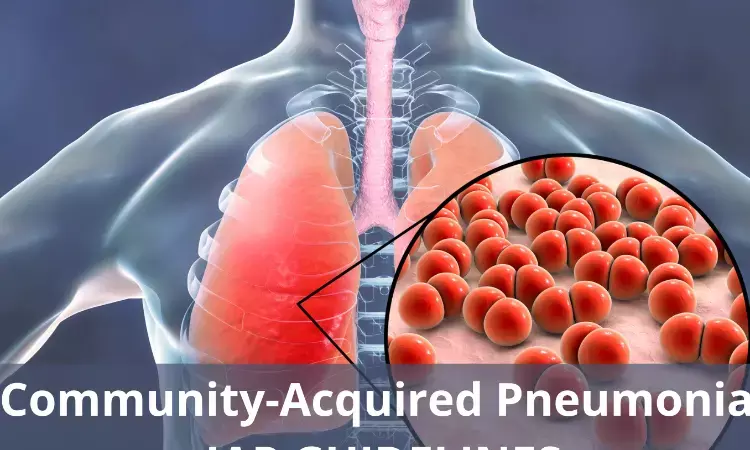- Home
- Medical news & Guidelines
- Anesthesiology
- Cardiology and CTVS
- Critical Care
- Dentistry
- Dermatology
- Diabetes and Endocrinology
- ENT
- Gastroenterology
- Medicine
- Nephrology
- Neurology
- Obstretics-Gynaecology
- Oncology
- Ophthalmology
- Orthopaedics
- Pediatrics-Neonatology
- Psychiatry
- Pulmonology
- Radiology
- Surgery
- Urology
- Laboratory Medicine
- Diet
- Nursing
- Paramedical
- Physiotherapy
- Health news
- Fact Check
- Bone Health Fact Check
- Brain Health Fact Check
- Cancer Related Fact Check
- Child Care Fact Check
- Dental and oral health fact check
- Diabetes and metabolic health fact check
- Diet and Nutrition Fact Check
- Eye and ENT Care Fact Check
- Fitness fact check
- Gut health fact check
- Heart health fact check
- Kidney health fact check
- Medical education fact check
- Men's health fact check
- Respiratory fact check
- Skin and hair care fact check
- Vaccine and Immunization fact check
- Women's health fact check
- AYUSH
- State News
- Andaman and Nicobar Islands
- Andhra Pradesh
- Arunachal Pradesh
- Assam
- Bihar
- Chandigarh
- Chattisgarh
- Dadra and Nagar Haveli
- Daman and Diu
- Delhi
- Goa
- Gujarat
- Haryana
- Himachal Pradesh
- Jammu & Kashmir
- Jharkhand
- Karnataka
- Kerala
- Ladakh
- Lakshadweep
- Madhya Pradesh
- Maharashtra
- Manipur
- Meghalaya
- Mizoram
- Nagaland
- Odisha
- Puducherry
- Punjab
- Rajasthan
- Sikkim
- Tamil Nadu
- Telangana
- Tripura
- Uttar Pradesh
- Uttrakhand
- West Bengal
- Medical Education
- Industry
Hydrocortisone Game-Changer in Severe Community Acquired Pneumonia Treatment

In a groundbreaking development, a comprehensive analysis of randomized controlled trials (RCTs) has unraveled the mysteries surrounding the use of corticosteroids in the treatment of severe community-acquired pneumonia (CAP). The study, which delved into 10 RCTs involving 1962 patients, aimed to bring clarity to the conflicting results by revealing that hydrocortisone had unique efficacy interesting CAP by reducing mortality substantially and improving outcomes.
The study results were published in the journal BMJ Open Respiratory Research.
Randomized Clinical trials have yielded inconsistent outcomes concerning the impact of corticosteroids in treating severe community-acquired pneumonia (CAP). Hence researchers conducted a systematic review and meta-analysis to scrutinize the effectiveness and safety of various corticosteroids in individuals admitted to hospitals for severe CAP.
A meticulous systematic search spanning databases like PubMed, Embase, Cochrane Central Register of Controlled Trials, Web of Science, and Scopus, dating back to the inception of research up to May 2023, formed the basis of this comprehensive analysis. The primary focus was on assessing all-cause mortality, with data analysis conducted using a random-effects model to ensure robustness.
Key Revelations:
- The overarching finding from the analysis is a significant association between corticosteroid use and a lower rate of all-cause mortality, denoted by a risk ratio (RR) of 0.70 (95% CI 0.54 to 0.90), and minimal heterogeneity (I2=0.00%).
- However, the real breakthrough emerged when specific corticosteroid types were scrutinized.
- Hydrocortisone's Triumph: This particular corticosteroid stood out with an extraordinary 50% reduction in mortality risk (RR, 0.48; 95% CI 0.32 to 0.72), and crucially, no observed heterogeneity (I2=0.00%).
- Hydrocortisone's prowess extended beyond mere mortality rates, showcasing additional benefits such as a marked decrease in the rates of mechanical ventilation, acute respiratory distress syndrome, shock, and a shortened duration of intensive care unit (ICU) stay.
- In stark contrast, corticosteroids like dexamethasone, methylprednisolone, or prednisolone failed to exhibit a significant improvement in mortality rates.
- Furthermore, the positive trends witnessed with hydrocortisone in mitigating pneumonia-related complications were notably absent with these alternatives.
Importantly, the study dispelled concerns regarding adverse events associated with corticosteroid use. Instances of gastrointestinal bleeding, secondary infections, and hyperglycemia, often linked with corticosteroid treatment, did not show an increased incidence.
This groundbreaking study not only brings into focus the unique efficacy of hydrocortisone in treating severe CAP but also provides clinicians with a roadmap for optimizing treatment strategies. As debates on corticosteroid efficacy persist, this research stands as a pivotal guide for tailoring treatment plans to maximize positive patient outcomes in severe CAP cases.
The implications of this study extend far beyond its immediate findings, paving the way for a more nuanced understanding of corticosteroid applications in severe pneumonia. With hydrocortisone emerging as a front-runner, the medical community now possesses a powerful tool to reshape the landscape of severe CAP treatment, promising improved patient outcomes and enhanced clinical decision-making.
Further reading: See XY, Wang TH, Chang YC, et al. Impact of different corticosteroids on severe community-acquired pneumonia: a systematic review and meta-analysis. BMJ Open Respir Res. 2024;11(1):e002141. Published 2024 Jan 22. doi:10.1136/bmjresp-2023-002141
BDS, MDS
Dr.Niharika Harsha B (BDS,MDS) completed her BDS from Govt Dental College, Hyderabad and MDS from Dr.NTR University of health sciences(Now Kaloji Rao University). She has 4 years of private dental practice and worked for 2 years as Consultant Oral Radiologist at a Dental Imaging Centre in Hyderabad. She worked as Research Assistant and scientific writer in the development of Oral Anti cancer screening device with her seniors. She has a deep intriguing wish in writing highly engaging, captivating and informative medical content for a wider audience. She can be contacted at editorial@medicaldialogues.in.
Dr Kamal Kant Kohli-MBBS, DTCD- a chest specialist with more than 30 years of practice and a flair for writing clinical articles, Dr Kamal Kant Kohli joined Medical Dialogues as a Chief Editor of Medical News. Besides writing articles, as an editor, he proofreads and verifies all the medical content published on Medical Dialogues including those coming from journals, studies,medical conferences,guidelines etc. Email: drkohli@medicaldialogues.in. Contact no. 011-43720751


